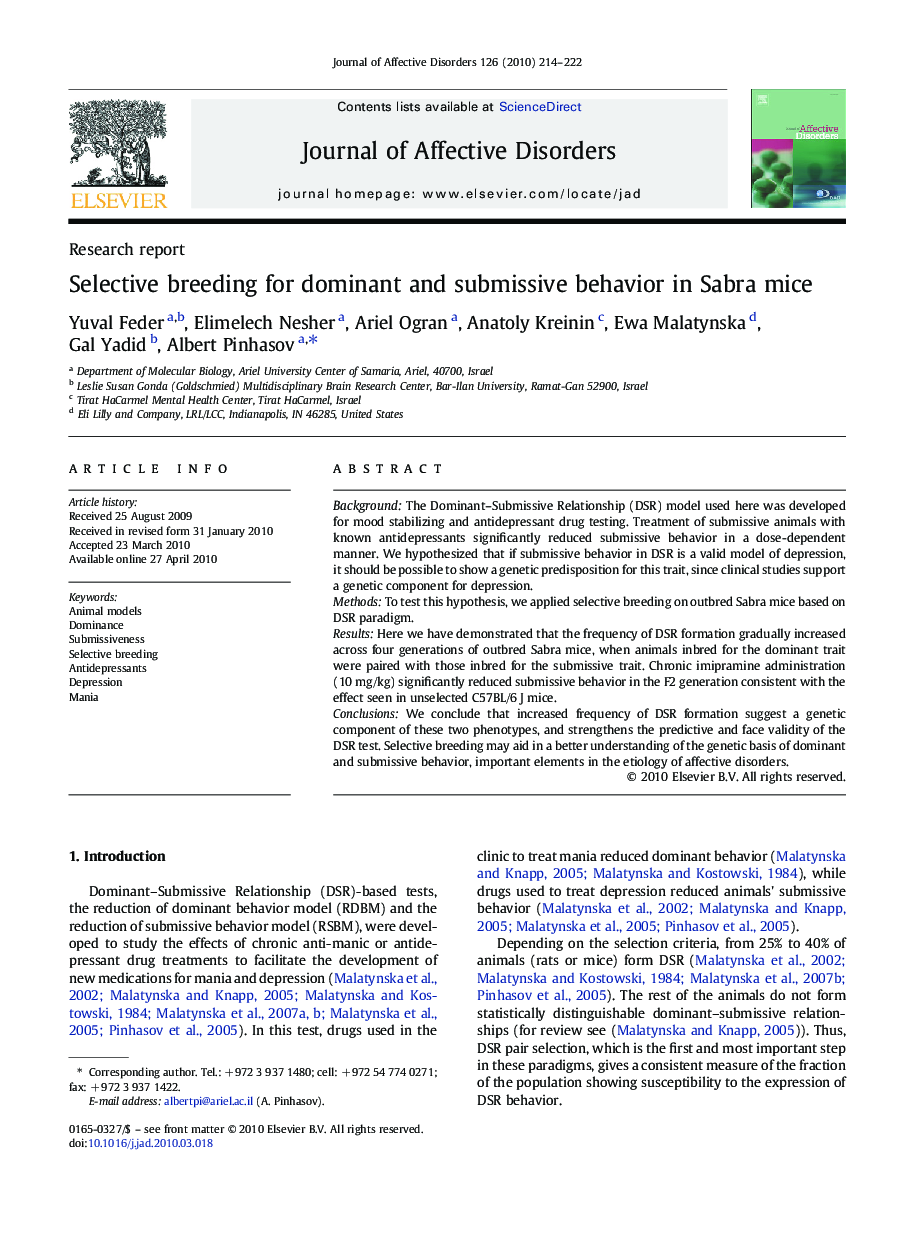| Article ID | Journal | Published Year | Pages | File Type |
|---|---|---|---|---|
| 4186784 | Journal of Affective Disorders | 2010 | 9 Pages |
BackgroundThe Dominant–Submissive Relationship (DSR) model used here was developed for mood stabilizing and antidepressant drug testing. Treatment of submissive animals with known antidepressants significantly reduced submissive behavior in a dose-dependent manner. We hypothesized that if submissive behavior in DSR is a valid model of depression, it should be possible to show a genetic predisposition for this trait, since clinical studies support a genetic component for depression.MethodsTo test this hypothesis, we applied selective breeding on outbred Sabra mice based on DSR paradigm.ResultsHere we have demonstrated that the frequency of DSR formation gradually increased across four generations of outbred Sabra mice, when animals inbred for the dominant trait were paired with those inbred for the submissive trait. Chronic imipramine administration (10 mg/kg) significantly reduced submissive behavior in the F2 generation consistent with the effect seen in unselected C57BL/6 J mice.ConclusionsWe conclude that increased frequency of DSR formation suggest a genetic component of these two phenotypes, and strengthens the predictive and face validity of the DSR test. Selective breeding may aid in a better understanding of the genetic basis of dominant and submissive behavior, important elements in the etiology of affective disorders.
